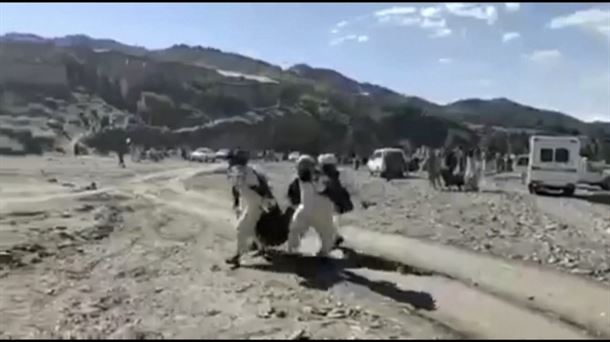With eccentric performances in the propaganda battle surrounding the war in Ukraine, the head of the Russian mercenary group Wagner, Yevgeny Prigozhin, repeatedly draws attention to himself. Russian-born historian Sergey Radchenko warns that he is a “master of disinformation” not to take Prigozhin’s words lightly. But his performance is an expression of the smoldering power struggle for the Kremlin.
The Wagner boss falls not only with angry tirades against the military leadership, threats of withdrawal and scolding of the “grandfather” in the Kremlin on. According to leaked documents, he even made an offer to Ukraine to reveal the positions of Russian soldiers if they withdrew from the embattled city of Bakhmut. So he wanted to exchange the lives of the Wagner mercenaries fighting there for those of ordinary soldiers – and would have committed high treason.
In an interview with krone.at, Russia expert Radchenko, who teaches at Johns Hopkins University, urges caution. Although he doubts the authenticity of the documents, from which the “Washington Post” quoted. Certainly, Prigozhin also maintains contacts with people from the Ukrainian secret service. The offer to disclose Russian positions might as well have been an attempted deception.
“Prigozhin Plays a Game”
When it comes to the actions of the infamous Wagner boss, “you always have to ask yourself what he wants with it,” Radchenko insists. Disinformation is part of Prigozhin’s activities and is partly responsible for his rise. He is also the owner of a Russian troll factory. Now in the war you need to be even more careful, the historian warns: “Prigozhin is playing a game.”
But what is excluded is Prigozhin’s conflict with the army leadership led by Defense Minister Sergei Shoigu and Chief of Staff Valery Gerasimov: “He totally hates them,” says Radchenko. His anger is “no show” and Prigozhin blames the leadership for the setbacks that the Russian armed forces had to accept in Ukraine. The historian explains that the attacks of “Putin’s cook” are definitely bad for the Russian forces and for morale.
“The army will not collapse because of this, but it is a problem,” Radchenko emphasizes. “Imagine being a soldier in the Russian army and hearing a superior call another idiot. Some are right and think they are really nitwits. But that is how you undermine power, discipline and hierarchy in the army.”
What is remarkable for Radchenko is Putin’s silence in the face of Prigozhin’s most recent bizarre video, in which he rhetorically asks if “this grandpa is a complete idiot?” – and according to many, he could only mean Putin, even if the Wagner boss portrays it differently. Expert Radchenko sees Putin’s silence on the issue as a sign that the Russian president is no longer unchallenged in power. He compares the president to the naked emperor from the fairy tale The Emperor’s New Clothes. “Russian elites know that the Emperor has no clothes,” Radchenko said.
Who will succeed Putin?
He does not yet see the fall of Putin on the horizon, but he does see an increasing disintegration of the Russian elite. There is a power crisis in Russia. “The Russian state is under pressure. You can already see the smoke rising. And where there’s smoke, there’s fire,” says Radchenko. The question is: who will succeed Putin? Yevgeny Prigozhin prepares for a post-Putin era and uses the war to improve his reputation. Until recently, he was little known, now he is popular among the people, explains Sergey Radchenko.
Although the Wagner boss is a longtime ally of Putin, he has sought further allies among representatives of the so-called siloviki, Russia’s armed forces. The siloviki include the military, the FSB secret service, the National Guard, as well as the Wagner group and other mercenaries. They are hardliners who want to continue the war and preferably strike even more brutally.
Oligarchs with a lot of money and little power
Another group to be reckoned with in the power struggle are the technocrats, including Russian Prime Minister Mikhail Mishustin and the head of the central bank. “They are business people who know how the country works,” explains Radchenko. The historian emphasizes that the oligarchs, who are often credited with great power, have less say than one might think. The war against Ukraine shows that: “They would like to end the war, but they can’t.”
How long can Putin stay in power? Historian Radchenko dares not make predictions, but warns: “Change in Russia comes slowly – until suddenly it comes quickly.” In the past century there were often revolutions and coups. It cannot therefore be ruled out that an overthrow can also happen very quickly now.
Source: Krone
I am Wallace Jones, an experienced journalist. I specialize in writing for the world section of Today Times Live. With over a decade of experience, I have developed an eye for detail when it comes to reporting on local and global stories. My passion lies in uncovering the truth through my investigative skills and creating thought-provoking content that resonates with readers worldwide.



